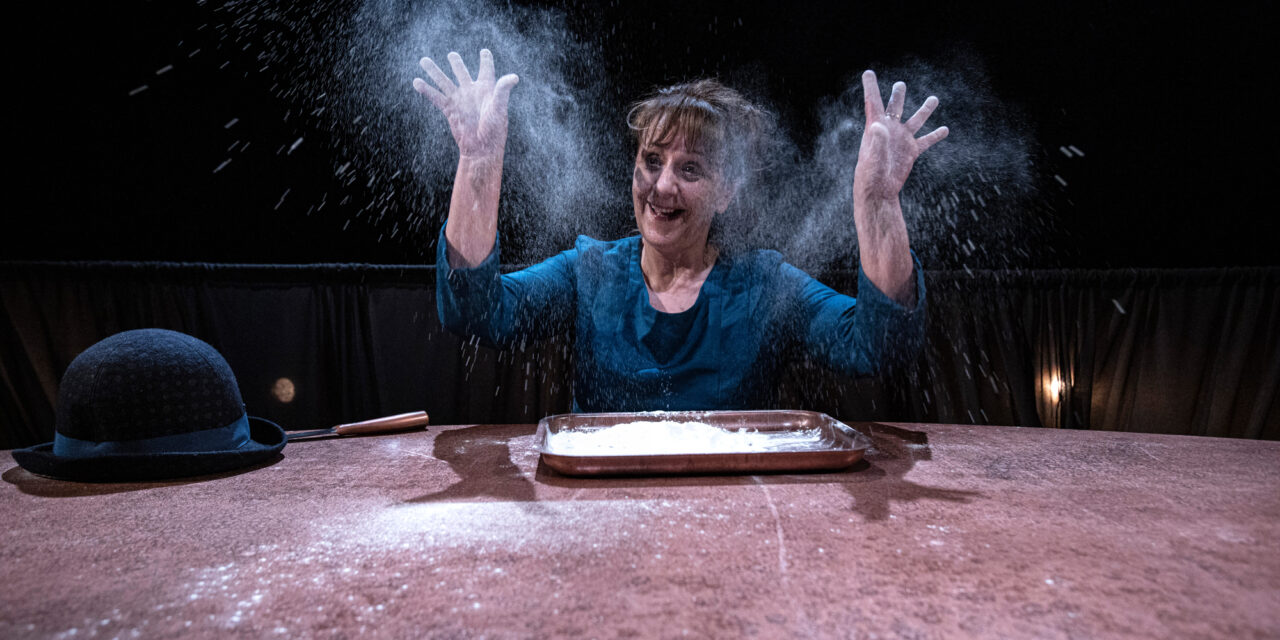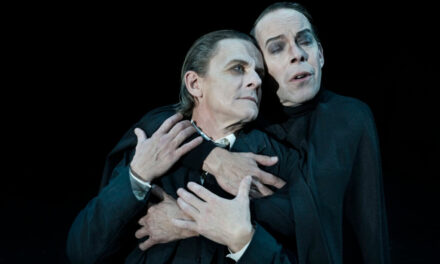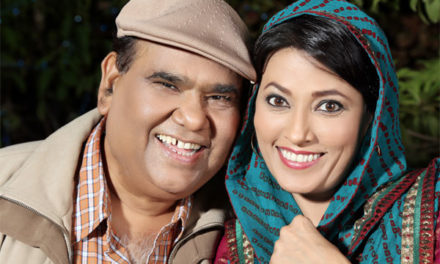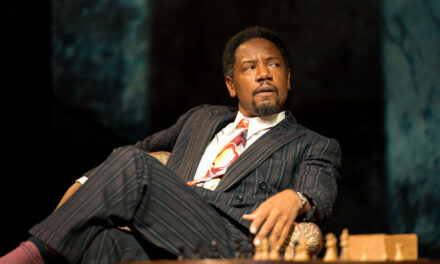What do Napoli, Avignon, and Edinburgh have in common? They host world-class international theatre festivals scheduled consecutively to facilitate efficient festival-hopping. If the Napoli Teatro Festival is not yet on your theatre-going list, it should be. The NTF turns the entire city (already rich with its own cultural history) into a performative venue for discovery.
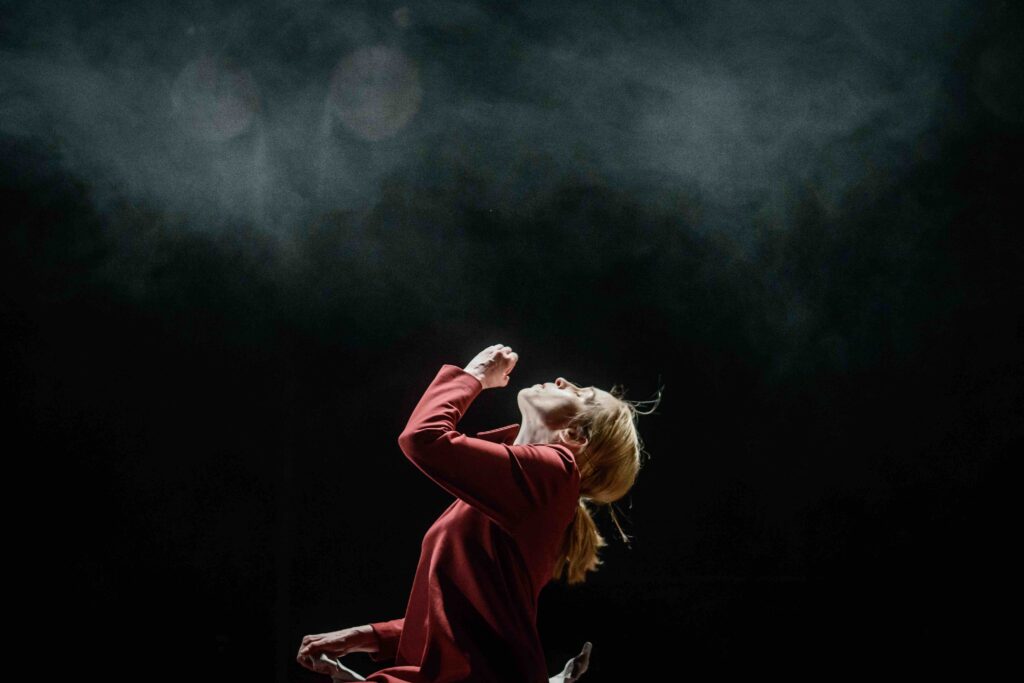
Zinc (Zn). Photo by Laura Vanseviciene
Now in its 11th year, and running from 8 June to 14 July, the Napoli Teatro Festival is a 37-day city-wide celebration of much more than theatre: in addition to the 11 international productions (including Lithuanian director Eimuntas Nekrosius’ Zinc (Zn) and a production from Barcelona’s famous Teatro de los Sentidos) there are 36 productions from all over Italy, 15 poetry and literature readings, 12 concerts, 13 dance pieces, 14 film screenings, 10 theatrical workshops, 8 art exhibits, 14 events specifically for kids, 22 special projects which range from intimate interactive and immersive shows to dance-theatre pieces in the ancient Roman amphitheatre at Pompeii, and 10 Sportopera pieces (sportopera refers to theatrical and artistic examinations of sports, for example, a theatrical examination of soccer fanatics that asks: “What does it mean to be an Ultra? What responsibility does it bear? What is the cost of being an Ultra?”). Then at the dopofestival, or after-festival, there are nightly music concerts ranging from tango performed by a group from Lisbon to contemporary pizzica compositions. These events take place in buses, on proscenium stages, in courtyards, in gardens, in the metro, and in converted palazzos.
Government funding for the festival is “driven by the idea that culture is the main road leading to redemption, evolution, and emancipation.” Government sponsorship means that tickets for all events are very inexpensive (€8), and many events are free.
The theme for this year’s festival is a metaphor; Ruggero Cappuccio, NTF’s Artistic Director writes:
Metaphors are not only a phenomenon of conjunction, but also elements of co-creation. If our eyes have the color of the sky, or if our souls may be in torment like winter tempest, it means that individuals are never isolated in their daily burdens, but take part in a universal mechanism where nature and feelings work together. […] The stars, the planets, the seas ]…] not only […] clarify the quality of our inner mechanisms, but [invite us] to accept the universal mystery we are – knowingly or not – connected to. […] Metaphors, however, are not only [a mechanism of] language. Metaphors also concern painting, sculpture, music. If in Vivaldi’s Spring we hear through sounds the shivering of fallen leaves, it must mean that human beings have access to secret and unthinkable interior dynamics. But the main battlefield of metaphor is theatre. ][…] An old chair is a throne, a strip of ragged paper is an oak tree […] In theatre there is never a still statue, never a pre-fixed architecture, but always a moving observer investigating on the changing expressions of a performer, who is just as dynamic. […] Among the two there is a relationship of complicity and, therefore, of co-creation. […] Theatre is after a specific goal, one that is highly democratic: sharing. (Cappuccio 2019)
“In the end,” Cappuccio concludes,
theatre is also a metaphor for awareness. Thanks to theatre it is possible to better understand pain and become stronger, it is possible to perceive the power of all human feelings improving our own…Through theatre it is possible to hear the force of death and discover the pleasures of living for others (Cappuccio 2019).
NTFI 2019, Cappuccio states, “works together with audiences to maintain the beauty of metaphors: we commit to defending imagination” (Cappuccio 2019).
Creativity carries through to every level of the festival, even the cell-phone announcement, which is played before every show:
One who does not go to the theatre will have lived only one life. Their own. On the other hand, one who has gone to the theatre will have lived 5,000 years. This was present already when Hamlet spoke with the ghost of his father. If you do not want to interrupt Hamlet’s hug with the spirits, turn off your cell phone. What happens here tonight happens only here and only tonight. It is a question of being here or not being here. (NTF 2019)[1]
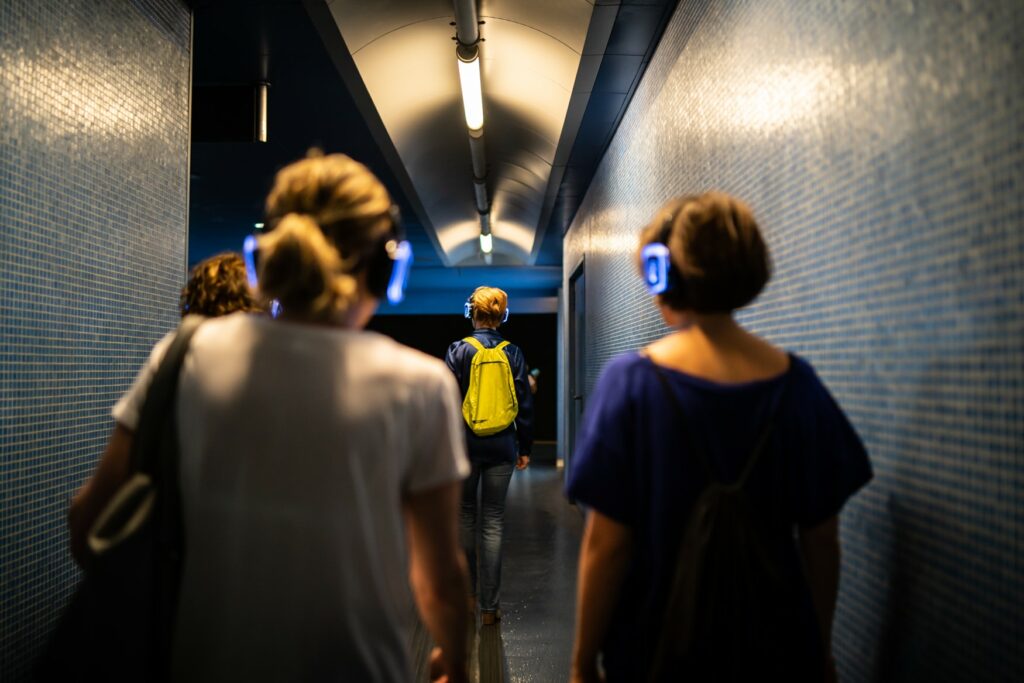
Underground. Photo by Sabrina Cirillo
On a typical day you can watch the extraordinarily talented Wanda Marasco weave together monologues from Medea, Juliet, Antigone, and Nora – sharing secrets of these passionate women whose desires were thwarted; women who live on in the examples and tactics they offer us. You can go Underground to experience the entire metro system as a civic play. You can see three art exhibits at Palazzo Fondi – one of which (Dans Un Jardin Je Suis Rentrée) focuses on the early sexual experiences of young women in Palestine, Lebanon, Iraq, and Syria by pairing images with autobiographical audio clips the audience can listen to on adjacent headphones.

Dans un jardin je suis rentréer. Photo by Amr Kokach
If you are tired, you can stop for an espresso in Palazzo Fondi’s gorgeous café with its welcoming staff. You can bring tears to your eyes with love poems intermingled with classic Neapolitan love songs accompanied by acoustic guitar in Amore Non Amore. Or see Otello Circus, which combines Shakespeare’s play with Verdi’s opera in a circus ring, and features stunning performances by a cast and orchestra that gives center stage to people with Down’s syndrome.
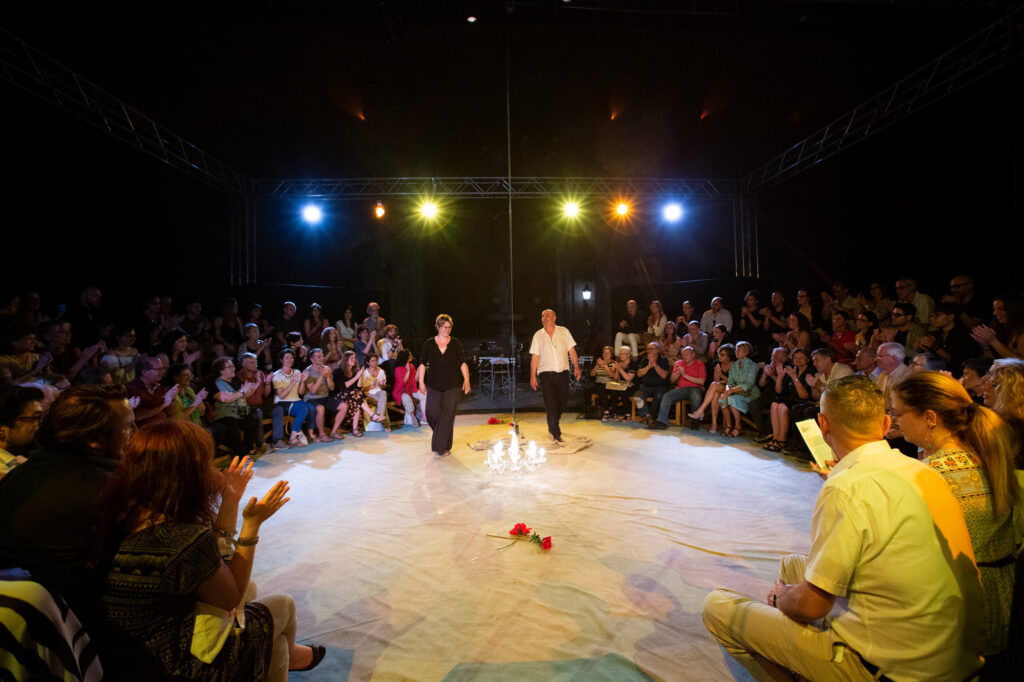
Otello Circus. Photo by Salvatore Pastore
Or climb into a bus to experience a dance-theatre-musical that will remind you to take advantage of every moment you have on this earth. You can end the day with an Aperol spritz in a garden overlooking Napoli’s Castel Nuovo (which, despite its name, dates to the middle ages) while listening to Napoli’s own Arapunto Zen play songs from their new album Maiacosajusta.
Immerse yourself in all that Napoli has to offer: the city is a stage.
References:
Cappuccio, Ruggero
2019 “A Victory for Metaphors.” Napoli Teatro Festival Program.
[1] Translation by Leila Satyanath-Mee
This post was written by the author in their personal capacity.The opinions expressed in this article are the author’s own and do not reflect the view of The Theatre Times, their staff or collaborators.
This post was written by Erin B. Mee.
The views expressed here belong to the author and do not necessarily reflect our views and opinions.

